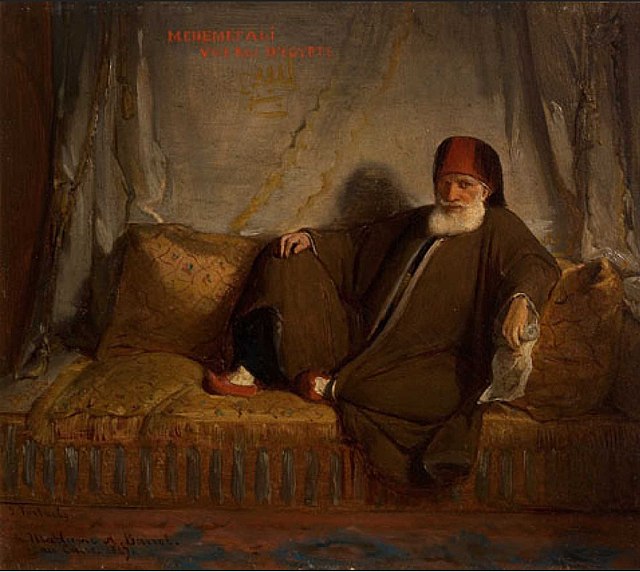The 1838 Treaty of Balta Liman, or the Anglo-Ottoman Treaty, is a formal trade agreement signed between the Sublime Porte of the Ottoman Empire and Great Britain. The trade policies imposed upon the Ottoman Empire, after the Treaty of Balta Liman, were some of the most liberal, open market settlements that had ever been enacted during the time. The terms of the treaty stated that the Ottoman Empire will abolish all monopolies, allow British merchants and their collaborators to have full access to all Ottoman markets and will be taxed equally to local merchants. These agreements did not constitute an equal free trade arrangement, as Britain still employed protectionist policies on their agricultural markets.
Mahmud II after his clothing reform in 1826
Territorial changes of the Ottoman Empire 1830
Muhammad Ali Pasha with his son, Ibrahim, and Colonel Joseph Sève (later Suleiman Pasha)
Mamluk cavalryman
Muhammad Ali was the Ottoman Albanian governor and de facto ruler of Egypt from 1805 to 1848, considered the founder of modern Egypt. At the height of his rule, he controlled Egypt, Sudan, Hejaz, Najd, the Levant, Crete and parts of Greece.
Portrait by Auguste Couder, 1840
Muhammad Ali's birthplace in Kavala, now in northeastern Greece.
Massacre of the Mamelukes at the Cairo citadel by Horace Vernet.
Muhammad Ali by Jean-François Portaels, 1847








